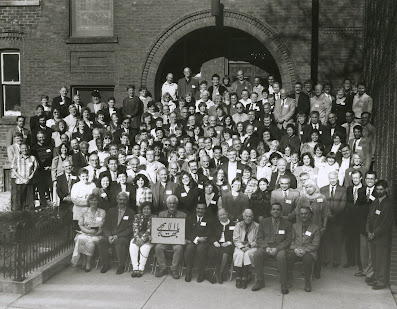[2018] Three brief years remain until the centenary of the Master’s passing, when Bahá’ís the world over will gather and take account of the distance traversed over the first century of the Formative Age. May His loved ones, individually and collectively, little by little and day by day, increasingly embody His counsels:
- to be united in the Cause and firm in the Covenant;
- to avoid calumny and never speak ill of others;
- to see no strangers but regard all as members of one family;
- to set aside divergent theories and conflicting views and pursue a single purpose and common goal;
- to ensure that the love of Bahá’u’lláh has so mastered every organ, part, and limb as to leave no effect from the promptings of the human world;
- to arise with heart and soul and in one accord to teach the Cause;
- to march in serried lines, pressed together, each supporting the others;
- to cultivate good character, perseverance, strength, and determination;
- to know the value of this precious Faith, obey its teachings, walk in this road that is drawn straight, and show this way to the people.
- The Universal House of Justice (From a message dated 26
November 2018 to the Bahá’ís of the World; ‘Messages from the Universal House
of Justice 2001-2022’)





















